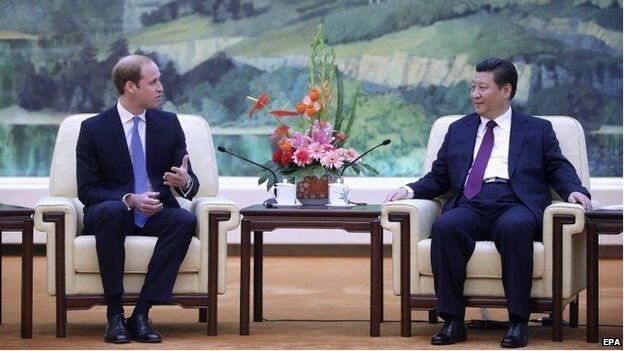The Two Meetings (again)
March 6, 2011
I WALKED about a mile along the formidable Bell Tower Road in Beijing yesterday, one of the many four-lane highways that gouge their way through Beijing’s renowned works of architecture and the vermillion walls of its imperial past to help facilitate the movement of several million ill-disciplined car-owners and – as a convenient by-product – the easy ingress of the People’s Liberation Army’s tanks.
Emerging from a crushingly unrewarding Liaoning Province delegation meeting, I am thinking of the tanks. It occurred to me today that despite arriving in Beijing as early as 1992, just three years after the appalling and demoralising events of Tiananmen Square, I have never known the city to be as palpably repressive as it is right now.
The Party gerontocracy is terrified of “Jasmine Revolution” type outbursts of public disobedience and has lined the streets with filth – low-level beat policemen standing at every intersection, SWAT teams in their vans, and a phalanx of volunteers taking immeasurable pride in their government-issue armbands.
I arrived at the office today and was immediately approached by a policemen asking me what I was doing there. “Are you a tourist?” he said. It is bad enough having to put up with the frankly ridiculous airport-type security arrangements in every Beijing subway station, which have been in place since the Olympics. It is bad enough that a significant number of my colleagues have been ordered to report to their local police stations or else visited at home by minions from the public security bureau. It is bad enough that the government now has the technology not only to monitor our phone calls but also to ascertain our locations and – allegedly – listen in to our private conversations by homing in on our mobiles. But if the state of mind of the government is so fraught and panic-stricken that they even feel it necessary to defend our anonymous office building from subversion and revolution, then they are not long for this world.
It seems there is a trigger-happy section of the Chinese government and security apparatus that feels it is better to be safe than sorry, that the biggest oaks arise from the smallest acorns, that the flap of a butterfly wing outside a branch of MacDonalds on Wangfujing could send ruptures through Zhongnanhai and the Chinese Communist Party. Meanwhile, certain factions in the Party – particularly those associated with the Foreign Ministry – think that excessive repression might end up being counterproductive. They might even prefer to loosen things up and make it clear to the world that political progress is being made that is commensurate to China’s undisputed economic achievements. After all, as people get richer, their expectations grow greater. They start to wonder what right an unelected, unrepresentative oligarchy has to make decisions on their behalf and enrich themselves in the process. You can’t just rely on ridiculous pseudo-Marxist assertions that the Communist Party = the People, ergo the dictatorship is ipso facto democratic, ergo the enemies of the Communist Party are ipso facto the enemies of the People.
The National People’s Congress began yesterday. The term “rubber-stamp” seems to give too much dignity to the procession of tedious delegates duty-bound to pay their tributes to a corrupt, morally bankrupt political system.
Today, I took a cab home and surged through the centre of Beijing. I contemplated the strange good fortune that the opening of China’s parliament was once again greeted with perfect blue skies, watched the crows flying over the Forbidden City and wondered where they lived, and then looked onto Tiananmen Square and wondered how many of the people walking across it were plainclothes policemen.
On Wangfujing last weekend, where a foreign website had urged all right-thinking Chinese people to assemble and protest against China’s enduring one-party state, the only people there were foreign journalists and public security – surely the only people in the country to have access to the subversive Chinese-language website that made the call to arms in the first place. It for some reason reminded me of the infamous meeting of the Trotskyist “Fourth International” in Europe in 1938, which was attended almost entirely by anti-Trotskyist agents of the Comintern or the NKVD.
It is a common suspicion that the Chinese government can somehow control the weather, that a few military planes squirting silver iodide into the clouds is enough to guarantee a glorious day in the glorious capital. The temptation is to believe that the dictatorship dictates everything, that even their mistakes are volitional and part of a deep-lying strategy on the part of one sinister faction. Actually, one gets the impression that the Party is merely winging it, and has been doing so for decades.
They paper over the obvious and quite frankly ridiculous contradiction of a Communist Party presiding over the wholesale privatization of the state’s assets, or a Communist Party being responsible for the greatest income disparities in human history, by coming out with even more ridiculous ideological formations like the “socialist market system”.
And they invite unapologetic plutocrats and parasites into the Party and claim that they represent the “advanced forces” of society, even though membership has become little more than a means of getting ahead, rather like the Masons or the Mafia. It is clear they have lost their moorings and all they have left is brute power – just like any other government, you might say.
The best thing you can say about them is that they have come to the conclusion that as long as they continue to enrich what Galbraith called the “constituency of contentment” – a relatively easy task – then they can continue to justify all their repressive measures against the minority of malcontents. Such a “business as usual” strategy is far easier to achieve than a wholesale rejection of Chinese Communist Party orthodoxy in favour of an untested democratic system involving multiparty elections.
But sooner or later there will be more and more people who are unhappy about the fact that their growing tax bills are being used to finance little more than a sophisticated nationwide security operation that has been put in place to prevent them from reading what they want on the Internet, from holding perfectly respectable opinions or from criticising their leaders.
Sooner or later, enough people will find such an arrangement completely unacceptable. I am optimistic: any sensible government would soon realise that the people need to find ways to express their grievances, and that whinging about their leaders is a far safer option than actually killing them with pitchforks. The survival instinct on the part of the government should eventually kick in. They should eventually come to the conclusion that repression is not the optimal solution.






